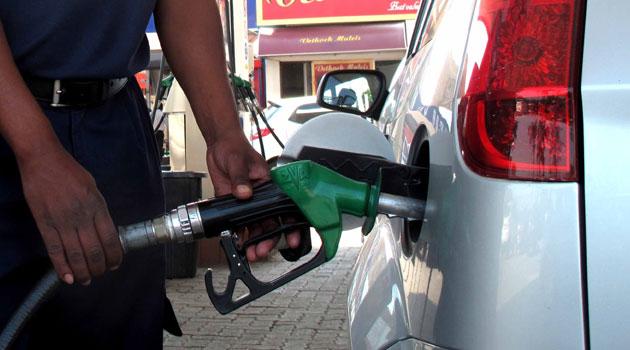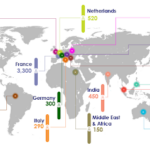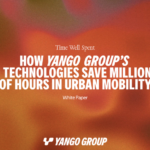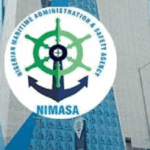

…as marketers increase price to N260
By Udeme Akpan, Energy Editor, Obas Esiedesa, Ediri Ejoh, Haruna Aliyu, Charly Agwam, Adeola Badru , Ugochukwu Alaribe, David Odama, Peter Duru, Ibrahim Hassan & Marie-Therese Nanlong
Independent oil marketers, weekend, increased the price of petrol by 30 per cent to an average of N260 per litre, from N200 per litre, recorded last week, as massive diversion, arbitrary pricing and pump manipulation persist nationwide.
Checks by Vanguard indicated that the shortage, which started in Abuja, the Federal Capital some months ago, has spread to virtually all parts of the country.
It showed that the independent marketers, who lift the product from private depots at between N200 and N225 per litre, added different transportation costs and margins, before arriving at the current pump price.
The checks also showed that the market was shrouded by many uncertainties, especially as the regulator – Nigerian Midstream Downstream Petroleum Regulatory Authority, NMDPRA – has not published authoritative reports, including data to guide the market.
Before the emergence of NMDPRA, through the nation’s Petroleum Industry Act, PIA, market operators had depended on the defunct Petroleum Products Pricing Regulatory Agency, PPPRA, to guide operations through its regular reports, indicating prices and margins to marketers and transporters.
The checks further indicated that the Nigerian National Petroleum Corporation, NNPC and their major marketers’ counterparts have made efforts to keep the price at about N170 per litre.
It also showed that the price of independent marketers remained the highest nationwide, at between N250 and N280 per litre, while the black market price stood between N400 and N450 per litre, depending on location and demand.
However, Lagos state recorded the least independent marketers’ price at below N250 per litre, because of proximity to the port, while Taraba state remained the highest at over N260 per litre, apparently because of distance.
Our Correspondents, who monitored the situation nationwide, also noted the perpetuation of many irregularities or sharp practices, especially as the NMDPRA officials, empowered by the nation’s Petroleum Industry Act, PIA, to sanction defaulters, were not visible.
Consequently, many black marketers were seen openly hawking the product in cans to motorists and other users at exorbitant prices, nationwide, between N300 and N400 per litre.
Abuja, environs
Three days after the Federal Government denied that it plans to hike the pump price of petrol, independent marketers raised their price to N280 per litre.
Checks on the petrol situation in Abuja on Saturday morning showed that while NNPC Retail stations maintained a pump price of N179 per litre, the major marketers dispensed at N180 per litre.
With most filling stations shut down due to lack of supply, long queues were noticed at the stations selling between N179 to N190 per litre.
The government through the NMDPRA had in a statement disclosed that there was no plan to hike the price of petrol.
The agency which insisted that the country had 34 days of sufficiency in stock, however, failed to state what the current government-approved price is.
South-West
The situation that had recorded improvement towards the end of November 2022, in Lagos, Ondo, Osun, Oyo, Ekiti, Lagos and Ogun States, worsened, weekend, due mainly to many factors, including sharp practices.
There were still huge numbers of tankers queueing to lift the product at private depots, thus obstructing motorists, including workers and businessmen that need to move from one place to another in Apapa, Lagos.
Checks by Sunday Vanguard revealed that independent marketers have hiked the price of petrol to between N250 and 280 per liter, while hawkers of the product continue to sell at N300 and N400 per litre.
Meanwhile, the major marketers that continue to sell at about N170 per litre, experience long queues as many motorists and other users, who have the time, would rather wait than pay higher elsewhere.
In an interview with Sunday Vanguard, weekend, the National President of the Independent Petroleum Marketers Association of Nigeria (IPMAN), Chinedu Okoronkwo, said the non-functional tank farms across the country continue to hinder operations.
According to him, “But the major area that affects us as Independent marketer is the distribution and we have made several presentations. Before now, we had depots, I mean land depots, both in Kano, Maiduguri, Makurdi, Port- Harcourt, Aba, Enugu, and the rest.
“Some of these depots I can tell you for free have not been dispensing products for some time now, the reason being that the level of vandalism going on is no longer allowing NNPC to continue pumping product through those pipelines and the loss is enormous and we agree. But on the other hand, we have Tank Farms that are built by the shoreline of this country such as in Lagos, Port-Harcourt, Oghara, Warri, and Calabar.”
However, fuel scarcity, which impacted negatively on residents of Ibadan, the Oyo State capital, toward the end of last month, has remained unchanged.
Residents expressed frustration, over the weekend, due to the difficulty associated with purchasing the product.
Our correspondent, who went around major areas in Ibadan observed that the few stations, belonging to major marketers, recorded long queues while the majority of the petroleum stations owned by independent marketers were selling at higher prices.
Specifically, the visit to the stations, including Monatan, Iyana Church, Iwo Road, Sango, Akobo, Total Garden, Bodija, Dugbe, Eleyele, Ologuneru, Sanyo, Soka, and Secretariat Road, also showed that the price of a litre of petrol now goes for between N200 and N300 in many of the independent marketers’ petrol stations.
But some sell at between N300, and N350, while others sell at N395, thus causing commercial transport operators, private car owners and others, including welders, barbers, grinders and tailors, without much money, to move from one part of Ibadan to another in search for options in the black, where the price of the product was put at between N300 to N500 per litre.
The scarcity has impacted the transport sector as motorists have increased their fares by about 33% to 50% in different parts of the capital city.
In Ibadan, from the University of Ibadan main gate to the popular Dugbe market is now N400 or N450 as against the previous rate of N200 while from the University of Ibadan to Agodi Gate Secretariat cost N200 or N250 against the previous N150.
Traders, who pay high fares have passed them to consumers in form of high prices as a container of yellow garri that used to be N350, now costs N500 and while white garri now goes for N400 against the previous price of N300.
Similarly, five tubers of yam are now N3500 from N2000, while a mudu of rice that was N900 before, now goes for N1500.
In an interview with Sunday Vanguard, the Chairman, of IPMAN, Oyo State branch, Mr. Bukola Mutiu, complained about challenges associated with lifting.
He said: “We have not loaded a litre out of this Apata depot here in Ibadan, and we are having five deports in the southwest and none of them is working at present so we have to be going to private depots to buy fuel from private depots owners and that we have been buying at exorbitant prices ranging from N220, N212 per litre without truck expenses and to the level of buying at the rate of N220; N222 per litre as at the close of work yesterday. If you add N30 transportation from Lagos to Ibadan and the total cost of transport is N30, meaning that we are getting the fuel to our various stations at over N255 per litre.”
South-East
The petrol shortage remains a major problem in the South Eastern states of Abia, Anambra, Ebonyi, Enugu, and Imo
For instance, Petrol now sells for N250 per a litre against the official pump price of N185 in Aba and other Umuahia cities of Abia state while some of the filling stations sell at N240 and N245.
Checks by Sunday Vanguard revealed that ordinarily, the shortage would not have been very severe in Abia because there were still commercial stocks in the state.
It showed that some filling stations sell fuel early in the morning and close before 10 am, while the task forces set up on petroleum products by the state government have not yet done enough to check the ugly situation.
Consequently, transport fares in both intra and inters- city routes have risen tremendously as a bus driver who plies the Aba –Umuahia route, said they have increased their fares to N800, from N700, while Owerri –Umuahia, now cost N1, 200, from N1500.
Similarly, a petroleum marketer in Aba, who pleaded anonymity told Sunday Vanguard said: “We have no option than to sell petrol at N250 because we source from outside the state at N220 – N225, depending on where you are sourcing from. You transport the product to where you need it. The poor state of our roads is a big problem. Most times, our tankers fall on the road and we incur losses. We pay our workers and maintain vehicles and equipment. We operate and sell with a little profit margin.”
South-South
The situation remains the same in the South South states of Akwa Ibom, Bayelsa, Cross River, Delta, Edo, and Rivers.
For instance, in Yenagoa, Bayelsa State capital, major oil marketers sell petrol between N180 and N200 per litre, even though they hardly have a steady supply.
The independent marketers, who declined to disclose their lifting price, yesterday, were seen selling between N230 and N250 per litre, while black market operators resell between N300 and N500 per litre.
However, there was no severe shortage in Rivers and Akwa Ibom State, where independent marketers, currently sell between N230 and N250 per litre.
The high cost of the product has impacted transport fares and by extension the prices of food and basic services.
North-East
The petrol shortage has become a major source of worry in Adamawa, Bauchi, Borno, Gombe, Taraba, and Yobe.
Take Bauchi state as a case, where some major marketers that sell below N200 per litre, did not have commercial stocks.
However, independent marketers sell the product at N250 per litre, while the black market operators sell it at N550 per litre.
One of the petrol marketers who pleaded anonymity, said: “The problem with us is that we like to tell ourselves lies. Do you know that we buy petrol between N165 to 180 from the sea to sell at N190? After our overhead cost, where is the profit? So, we have to look for ways to make a profit if not we will run out of business. You are talking about NMDPRA, but they know the reality on the ground. When things were fine, who was looking for ways to increase the price of petrol? We have to tell ourselves the truth and go back to the drawing board if we want this scarcity to go away.”
Similarly, Indigenes of Taraba state have frowned at the inconsistent price of petrol which has taken a toll on their income.
Checks by Sunday Vanguard showed that while some independent marketers of petrol, shut their stations, others with the product sold over N260 per litre, while the price of black marketers stood at N350 per litre.
North-West
Long queues have re-emerged in many parts of Jigawa, Kaduna, Kano, Katsina, Kebbi, Sokoto, and Zamfara.
In Kaduna, motorists have continued to grapple with the fuel situation like in other states of the Federation.
Checks revealed that motorists bought at the filling stations belonging to NNPC at N185, but the product was not readily available while major marketers whose price hovered at N250 per litre did not have stocks.
Motorists, therefore, relied on the filing stations belonging to independent marketers where they get the product at N260 per litre, compared to the black market, where it was sold at N300 per litre.
A motorist, Yusuf Samuel, said to save time and energy, many motorists especially those in business buy from the black market.
Similarly, it was also noticed in Birnin Kebbi, the state capital, that the fuel scarcity which began in early November 2022 has now slipped through to December.
Checks by Vanguard revealed that most of the nearly two hundred filling stations in Birnin Kebbi, currently sell the product at very exorbitant prices.
The Kebbi state chairman of IPMAN, Alhaji Dan tilla Jega could not be reached for comments, weekend as all his numbers were switched off.
However, the state chairman of NLC, Comrade Umar Halidu Alhassan, said the association was monitoring developments for the purpose of making suggestions to the government and other stakeholders.
North-Central
Benue, Kogi, Kwara, Nasarawa, Niger, Plateau, and the Federal Capital Territory.
In Nasarawa state, marketers have positioned themselves in strategic locations across the 13 Local Areas and other parts of the state, hawking the product.
According to the retailers, the situation has made many of their members suspend the sale of the product coupled with their inability to get the required quantity, which has culminated in the emergence of black marketers. Some hawkers were spotted in strategic areas in Lafia, Keffi, Karu Akwanga and some major towns and villages in front of filling stations hawking between N2,000 and N2,500 to motorists.
A senior official of IPMAN, Mustapha Usman told our correspondent that the partial scarcity in Nasarawa could be due to product hoarding by tanker owners, who recently increased the price.
However, the Nasarawa state Chairman, IPMAN, Alhaji Yusuf Sandaji denied the involvement of marketers in hoarding, adding that, “Marketers will sell when they have the product which also determines the operation of marketers, who want to sell and make a profit.”
Also, the shortage has hit Benue state to a appoint where none of the major marketers could boast of commercial stock, except a few Independent Marketers that sell at between N240 and N260 per litre while their black marketer counterparts sold at N400 per litre.
Unrealized promise
The NMDPRA had last Thursday raised hope that the fuel shortage would soon be over, considering the expected arrival of imported products.
The Delta Coordinator of NMDPRA, Engr. Victor Ohwodiasa, had raised the hope after an unscheduled inspection visit to some petroleum depots at Ifiekporo Community, Warri South Local Government Area of Delta State.
He had said: “We will ensure that the depots receiving these products lift them out to the end users. By the time we have all the depots wet with PMS and they are lifting regularly, the looming scarcity we are experiencing will disappear. Once we get our daily manifest, we send our men out to make sure those trucks get to their actual locations.
“There might be one or two infractions, we have apprehended about two persons for product diversion and they were made to face the full wrath of the law. As a regulatory authority saddled with the responsibility of regulating the Midstream and Downstream of the Oil and Gas sector in Nigeria. We will continue to do what we need to do to ensure that the products are available and adequately and fairly distributed within Delta and neighbouring states.”
Sadly, the situation remained unchanged in not only Delta but also in other states.
Labour, others caution
However, the Nigeria Labour Congress, NLC, and Trade Union Congress, TUC, have urged the Federal Government to put an end to the fuel shortages in the country.
The Presidents of NLC and the TUC said this in a statement, signed by Mr. Ayuba Wabba and Mr. Festus Osifo.
The labour leaders stated: “No excuse is good enough to cripple the country. If there are challenges, they should be fixed. We have a government in power to fix challenges not to make excuses. All these have tragic consequences for the Nigerian people and debilitating effects on the health of the economy which itself is not in a good state. We are reliably informed that the shortage is deliberately fostered by players in the downstream sector in other to hike the price far above the government-approved threshold.
“It is an added problem when non-state actors begin to arrogate to themselves the power to determine the price of a litre of fuel far above the rate pegged by government in the current subsidy regime.
“It is more disturbing that the government is equally demonstrating the high level of culpability in the unwholesome situation by its silence and unwillingness to frontally and publicly address the harrowing experiences in the current situation. No concerned and responsive government will bury its head in the sands like the proverbial Ostrich while the citizens are being brutally exploited.
“We are strongly worried that leaving our energy security and sovereignty in the hands of unscrupulous capitalists and their collaborators will further plunge this nation into the economic abyss we are working hard to avoid.”
The post <strong>PETROL: How product diversion, pump manipulation fuel scarcity</strong> appeared first on Vanguard News.





